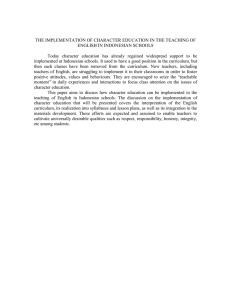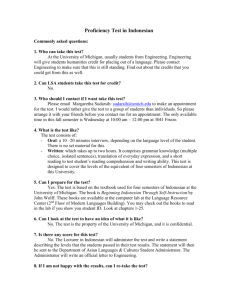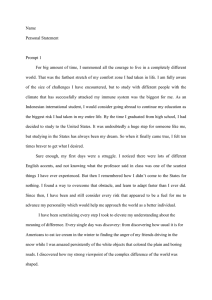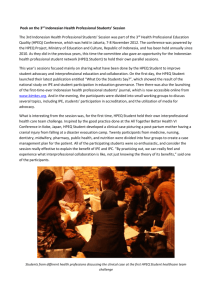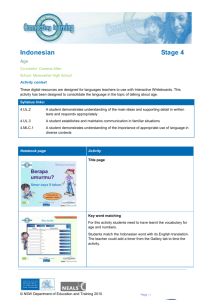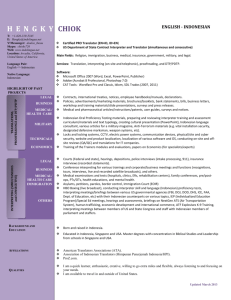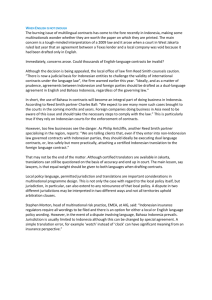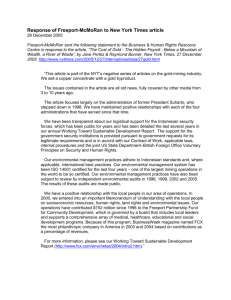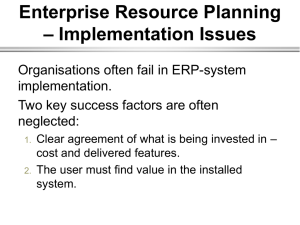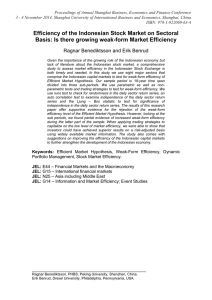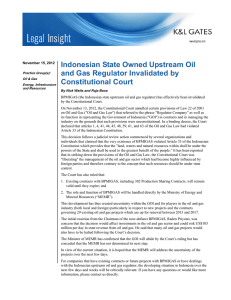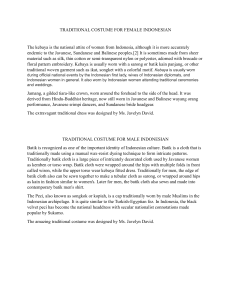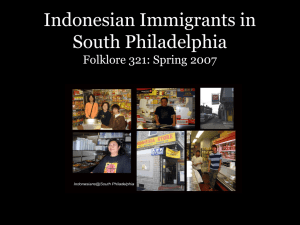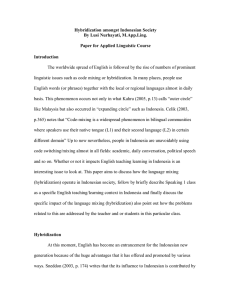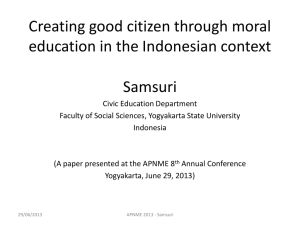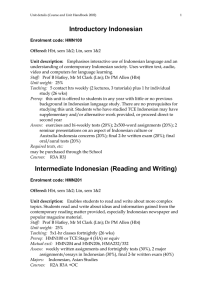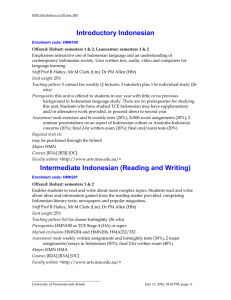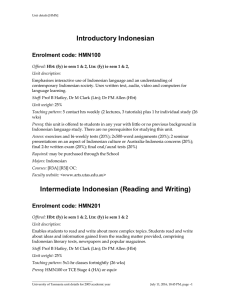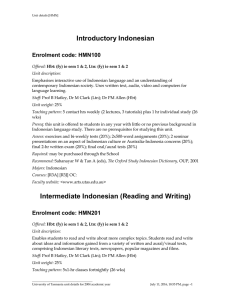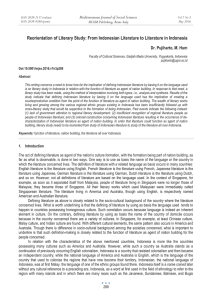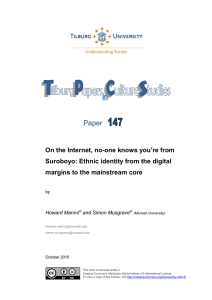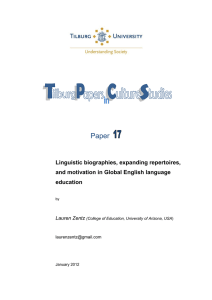presentation
advertisement
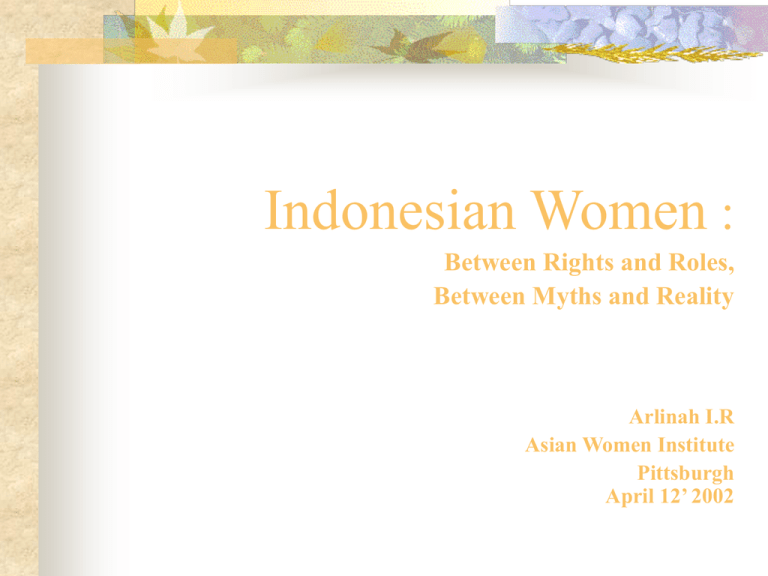
Indonesian Women : Between Rights and Roles, Between Myths and Reality Arlinah I.R Asian Women Institute Pittsburgh April 12’ 2002 Is Indonesia a Moslem Country? Indonesian Constitution ( UUD 1945) Indonesian Five Principle ( Pancasila) Freedom for people to practice their own religion respect for one another Indonesia Population : 270 million ( > 50 % women) islands : 17,000 ethnic groups : 300 Some ethnic groups Javanese : Kejawen, Hinduism, Islam Sumatra : Batak : Christianity; Minangkabau : Islam Bali : Balinese, Hinduism Eastern Indonesia : mostly Christian Chinese : Buddhism, Christian Cultural System Mostly Patriarchal Some are Matrilineal Javanese women Patriarchal System Suwarga nunut, nirwana katut konco-wingking a good woman: loyal, listens and submit to husbands. high position at home, no place outside the home brighter world nowadays in education, employment, activities ( in the cities) still let husbands make decision Balinese women Patriarchal System Spiritual, family-oriented, hardworking and artistry working is self actualization and devotion to God double roles is a virtue ( inside and outside homes) not enough rights ( polygamy, decision making for developing the community, politics ) Batak women Patriachal System No rights for marriage, family decision making respected in the family No education until 1930 the inheritance rights is lower than men’s Minangkabau Women Matrilineal System Property, titles, family names handed down through women sides women’s family proposes for the marriage the husband moves to the home of the wife the husband takes care of his sisters’ family The myths ( formal) Indonesian Constitution ( UUD 1945 pasal 27, 30) Indonesian Five Principle ( Pancasila) Indonesian Legislation referring to United Nation Convention (UU No 7 /1984) Equality for men and women The reality more roles for women except in politics ( 2 ministers) education plays an important roles in the increase of roles not enough opportunities for education especially in the rural areas limited rights in employment especially for low-paid workers and women living in the rural areas discrimination in private sectors ( salary, recruiting, promotion, family benefit) victims of unjust treatments and violence Indonesian Women in politics Government Institution Women Executive 18 Legislature 45 Supreme Court 7 State Accounting Board 0 Supreme Advisory Council 2 General Elections Commission 2 total 74 Governor 0 30 0 % Regent 5 331 1,5 % Men Percentage 177 9,2 % 455 9 % 40 14,8 % 7 0 % 43 4,4 % 9 18,1 % 731 9 % Some Indonesian women eminent figures Freedom Fighters : Cut Nyak Dien, Cut Meuthia (Aceh) Politics : Marwah Daud Ibrahim (Sulawesi) Education : R.A. Kartini , Dewi Sartika, Mien R. Uno , Anita Lie ( Java) , Astrid Wiratna (Bandung) Literature : Ayu Utami (Bogor), Helvy Tiana Rosa (Aceh-Chinese), Marga T. (Jakarta), NH Dini ( Java) Arts : Christin Hakim (Sumatera), Titik Puspa (kalimantan ) Economics : Miranda S. Gultom, Rini Suwandi, Dr. Sri Mulyani ( Java) Scientist : Dewi Fortuna Anwar (Sumatera), Pratiwi ( Java)
